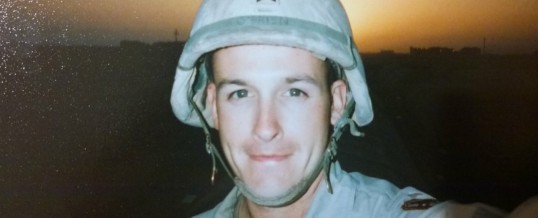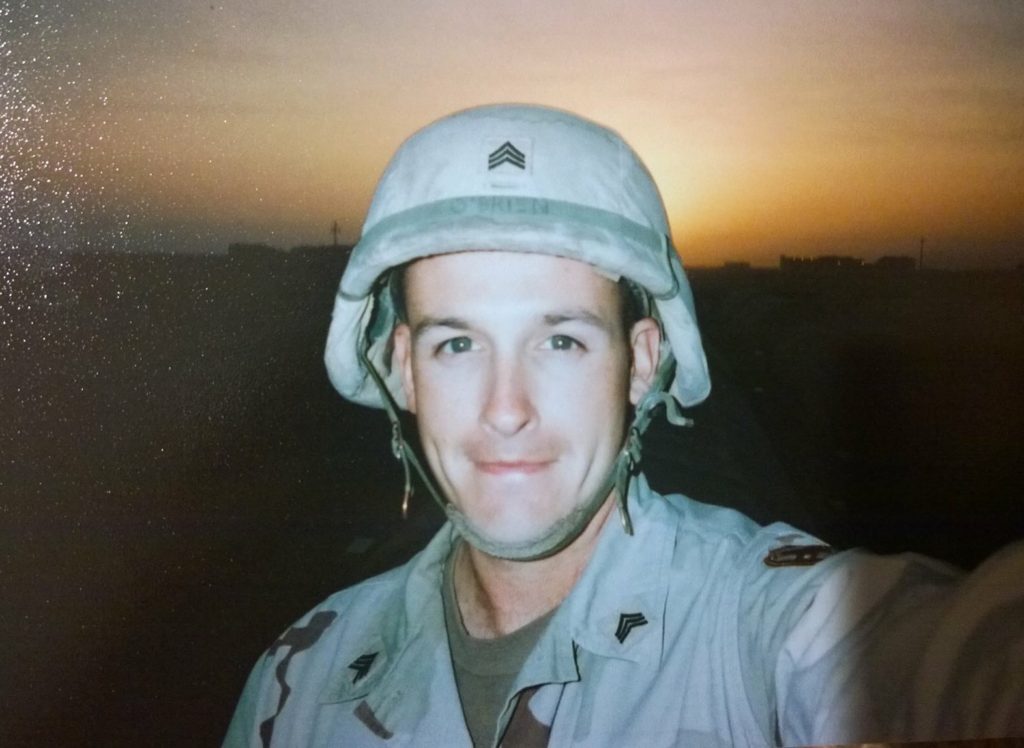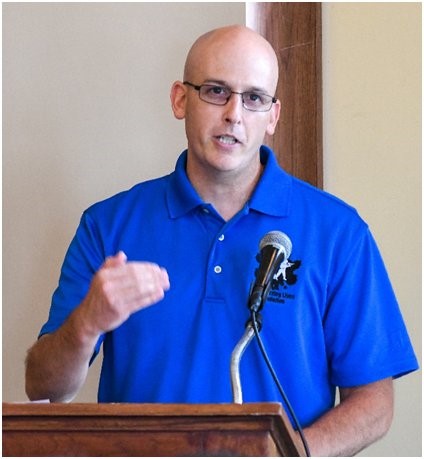
By Corey O’Brien
Corey O’Brien is a US Army and Ohio National Guard veteran with a TBI and PTSD who credits his recovery to a Transcendental Meditation program for veterans, enabled through a partnership between the Resurrecting Lives Foundation and David Lynch Foundation. O’Brien is a science teacher at Hamilton Township High School in Ohio. He is a married father of five, and has two tours in Iraq behind him.
Military service runs in my family. When I say it runs in my family, my grandfather was a B-17 bomber pilot during World War II and Korea. His son, my father, was a Marine during Vietnam. I decided to join the Ohio Army National Guard; I did my nine years, and had two deployments to the Middle East. I did my time, but I’m not a hero. No, I did my job. I took my oath. I did as I was told. I followed orders.
I came home feeling very unfulfilled. I felt like my life was lacking. I felt like a failure. I felt like I let down a lot of people. While I was deployed I lost some friends that were close to me. And I’m sure that some of you who served, you also know that pain that I’m talking about.
My last deployment, I came back in 2005; I struggled with multiple different types of demons – trying to figure out how to function, how to work, how to survive. Now, in that meantime, my family suffered. I became a monster. I had a very short fuse. My temper was so intense that at times I scared myself. I found myself reacting to situations with violence. I found myself reacting to situations that if things had gone just a little bit differently, I might have ended up in jail. And I’m a high school science teacher. The VA is going to offer a type of antidepressant medication, which they can do for five cents a day. But a lot of people like myself, we turned down the medication. I was given certain skills: hypersensitivity, hyper-alertness, that kept me alive. I don’t want to take a magic pill and have that disappear.
PTSD is something that I not only saw in my grandfather, and saw in my father, I also found it in myself. Now imagine combining PTSD with something as challenging as TBI – traumatic brain injury. When you take those two things and add them together, it’s no surprise that you have a high suicide rate. It’s no surprise that you have a high divorce rate. It’s no surprise that we have a lot of veterans who are having trouble reintegrating into society and becoming functional, or being able to provide for their families that they, at one point in time, had to leave. So something has to be done, whatever we are doing right now isn’t working. So I tried to find another way to help myself.

And it wasn’t until 2017 when I finally found a viable option that worked – and that viable option was Transcendental Meditation. Since I started meditating, I’ve felt more rested; I can sleep better. I get more done at home, I get more done at work. I was actually talking to people. I was talking to my colleagues, up until that time I had been a ghost. This is only something that happened a year ago. And within that year, I’m now a veteran who wants to help other veterans, and now I have the energy, I have the thoughts, I have the good ideas, and I’m able to actually act on them. I became human. I became human again. I came back from the dead. I was resurrected.
And, I owe all that, in part, to that chance meeting with Dr. Gordon of the Resurrecting Lives Foundation, and TM teacher Mr. David Kidd. Mr. Kidd is the person who taught me how to do Transcendental Meditation. And because of that meditation, I feel better. I look better. I owe David my life. He helped me be a better parent, a better teacher, a better father and a better husband.
Thank you to the Resurrecting Lives Foundation and David Lynch Foundation. Thank you from the bottom of my heart. You’re the reason why I was able to do Transcendental Meditation. Not only did you help me, but you helped other veterans and my father was one of them. I went through the program, I noticed a difference, I said, “Hey, Dad, this is something you gotta give a shot, you gotta give it a try.” Sure enough, he did – and he’s off 3 different types of medication because of it.
So I’m here right now in front of you, telling you, this is a real thing. This is something that helps us be more functional. This is something that helps us reintegrate. This is something that gives people their lives back.

MAR
2019

About the Author: